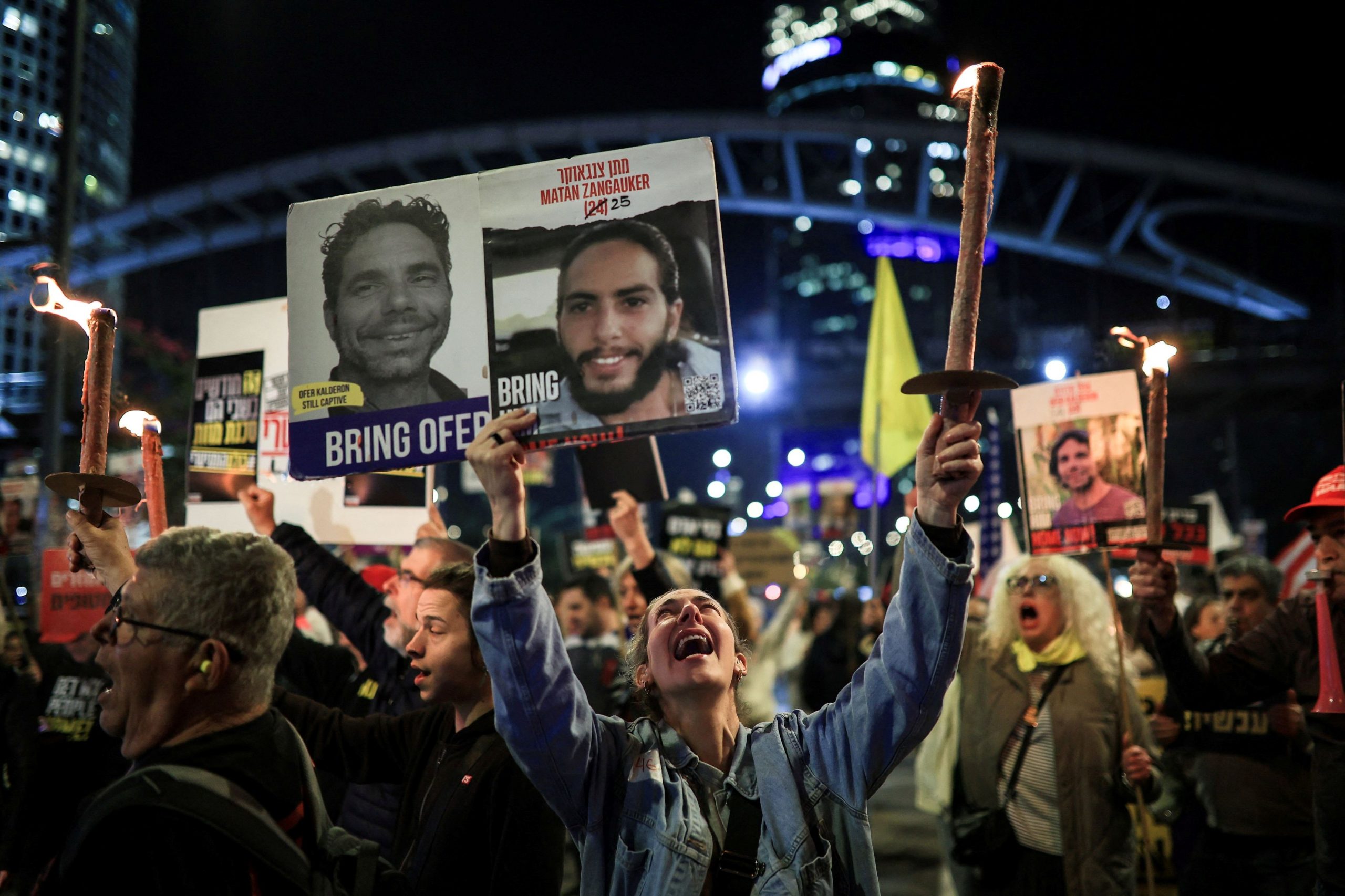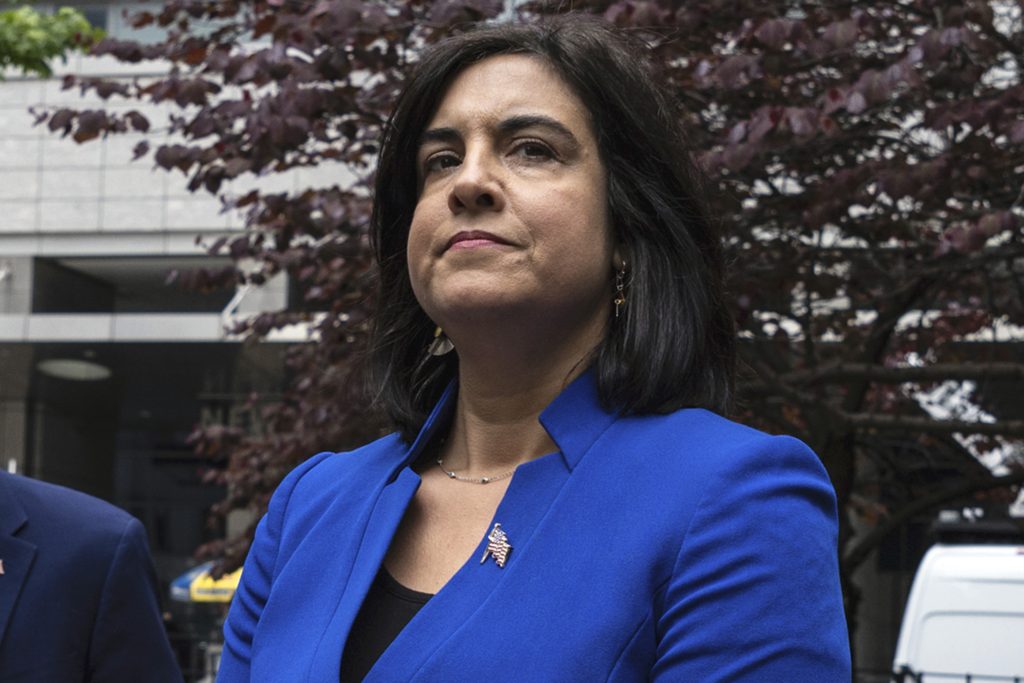Cease-fire talks between Palestinian militant group Hamas and the Israeli government have made progress in recent days, raising hopes a deal could be reached to release some of the hostages still held in the Gaza Strip and pause fighting that has dragged on for 15 months.
“We are close to a deal and it can get done this week,” U.S. national security adviser Jake Sullivan said Monday. Arab mediators and Israeli officials have also said there has been progress in the talks while cautioning there are still gaps to be bridged.
A deal would at least pause the war triggered by the Hamas-led Oct. 7, 2023, attacks that left around 1,200 dead and some 250 people taken hostage , while freeing some of the hostages who are still being held in Gaza. More than 46,000 people have been killed in the Gaza Strip during the war, according to Palestinian health authorities, who don’t say how many were combatants.
Talks to pause the fighting between Israel and Hamas have been stalled for months, with the two sides split on the fundamental question of whether any cease-fire should become permanent, as Hamas insists, or allow a return to military action, as Israel wants. Previous moments where agreements seemed close have ended in disappointment.
Both sides have been under pressure to come to terms as the U.S. presidential transition nears. President-elect Donald Trump said a week ago that “ all hell will break out in the Middle East ” if the hostages aren’t released by the time he takes office on Jan. 20, repeating a threat he had made earlier. He hasn’t explained what he means, but said last week it wouldn’t be good for Hamas or “frankly, for anyone.”
Trump’s designated Middle East envoy, real-estate executive Steve Witkoff, has been in the region for talks toward a deal, including a meeting in Israel with Prime Minister Benjamin Netanyahu.
Hamas also has been isolated by Israel’s battering of Hezbollah, which led to a deal that halted the Lebanese militia’s attacks, and the fall of Syrian President Bashar al-Assad. Both, like Hamas, were supported by Iran.
The first stage of the deal under consideration would pause fighting and allow for the release of some Palestinians prisoners in Israel in exchange for the release of 33 hostages being held in Gaza. The hostages to be released would include women, children, people with severe injuries and those above the age of 50, according to a draft of the deal seen by The Wall Street Journal. Hamas would also hand over dead bodies.
The militant group agreed that Palestinians released from long jail terms would leave the Palestinian territories and live in exile abroad with their families.
Hamas also accepted verbal guarantees from the U.S., Qatar, Egypt and Turkey that Israel would continue negotiations for a permanent cease-fire after the expiry of the first phase of the deal, Arab mediators said.
As part of the proposed agreement, Israeli forces would remain in some parts of Gaza when the fighting stops but would eventually withdraw from the corridor along Gaza’s border with Egypt and another that bisects the Gaza Strip. Hamas agreed to put off resolving some differences with Israel to the second phase of the deal, including over the buffer zones Israel wants to maintain along the eastern and northern edges of Gaza, Arab mediators said.
A deal would come as a relief to the families of the nearly 100 hostages still being held in Gaza, though over 30 have been confirmed dead by Israel. It would also help the enclave’s population, which has faced months of displacement and deprivation.
Palestinians in Gaza, weary of more than a year of war, had called on social media for Hamas to accept a deal that would help end the war, even if it doesn’t achieve other goals like freeing thousands of Palestinian prisoners in Israel’s jails.
Most of Gaza’s prewar population of 2.2 million has been displaced by the war, with many people living in makeshift tent encampments near the seaside in southern Gaza. With temperatures falling and back-to-back storms hitting the enclave, Gaza
ns say conditions in the encampments are increasingly harsh.
In Israel, families of the hostages have put heavy pressure on Netanyahu to strike a deal that secures their release, arguing that every day of captivity risks their lives and well-being. Many families have taken to the streets to protest for months on end and accuse Netanyahu of failing to give priority to the release of their relatives.
Israel says 94 hostages taken on Oct. 7, 2023, remain in Gaza, most of them Israeli. They include dual nationals and more than 30 hostages whom Israel has concluded are no longer alive, based on intelligence findings. Four additional hostages, taken before the Hamas-led attack, bring the total to 98.
Before the most recent developments, the talks had stumbled along for months. Their continued failure has been a blow to President Biden ’s administration, which has invested substantial amounts of time and political capital pushing for an agreement.
A deal last seemed close in mid-December. But the talks stalled as the parties got deeper into the specifics and hardened their positions.



